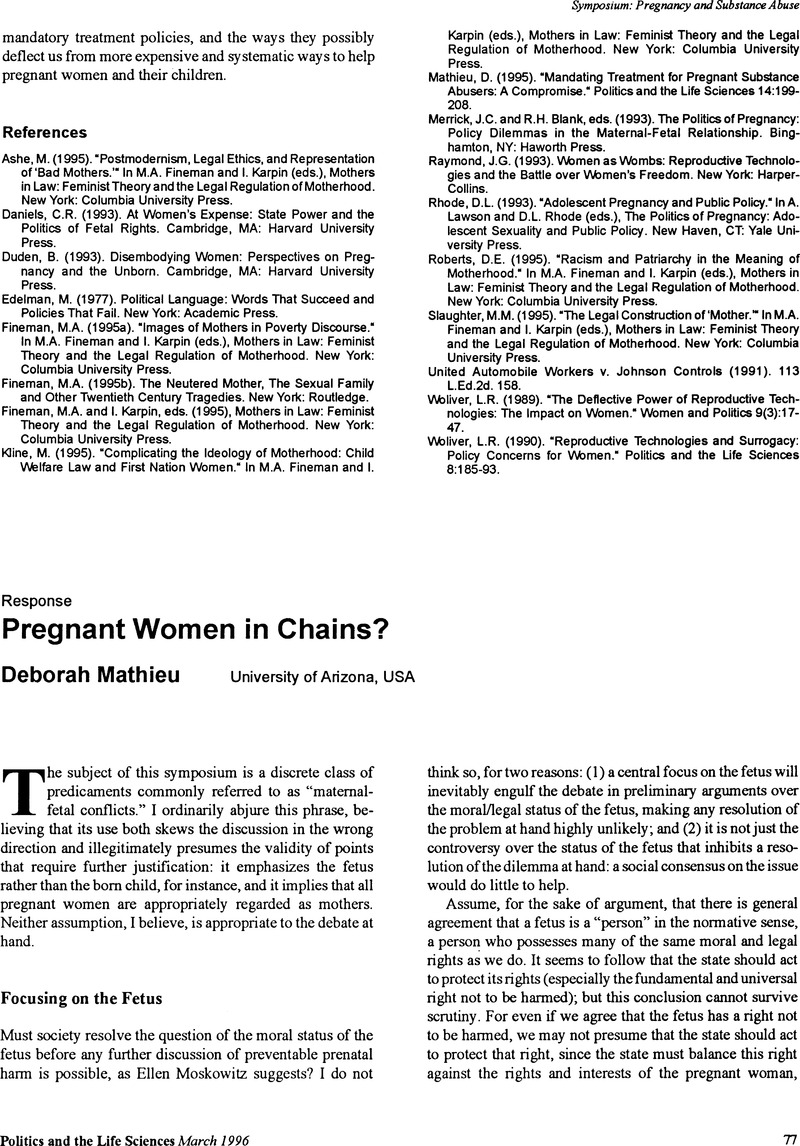Crossref Citations
This article has been cited by the following publications. This list is generated based on data provided by Crossref.
Abel, Ernest L.
1998.
Protecting Fetuses from Certain Harm.
Politics and the Life Sciences,
Vol. 17,
Issue. 2,
p.
113.
JACOBSON, PETER D.
ZELLMAN, GAIL L.
and
FAIR, C. CHRISTINE
2003.
Reciprocal Obligations: Managing Policy Responses to Prenatal Substance Exposure.
The Milbank Quarterly,
Vol. 81,
Issue. 3,
p.
475.



